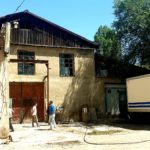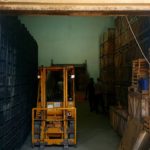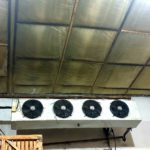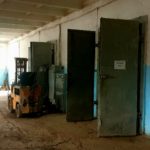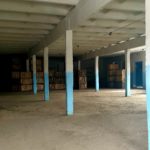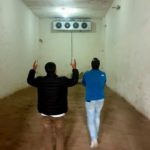Outlook and prospecting for new projects
In parallel with the implementation (Senegal) or launch of a new funding phase (Kyrgyzstan) of projects supported by the Foundation, various steps have been taken to develop new projects.
Exchanges and discussions have led to plans for a second project in Kyrgyzstan, again in conjunction with CAMP Alatoo, the PROMEE project partner. The Foundation could also open up a third country of intervention, with opportunities identified in Jordan, with a rather interesting general context.
Jordan: a favorable environment
The Foundation's mission in Jordan
The first contact with Masar Society for Environmental Development (MSED) was established in February 2023. After various meetings and discussions, the Foundation carried out an exploratory mission in October 2023.
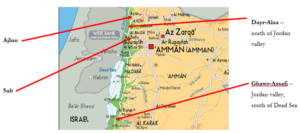
Various stakeholders were met during this on-site mission:
- Farmers from the north and south of the Jordan Valley
- Civil society organizations working in the field of energy access and/or microfinance.
- Technical universities and photovoltaic training centers
- Companies providing photovoltaic installation services
- Technical equipment and material stores
Connection to the electricity grid has reached almost 100% in Jordan. Non-connection in the areas visited mainly concerns a few isolated farms.
However, the energy sector is vital to the Hashemite Kingdom of Jordan because of its dependence on imports: 93% of its total energy needs in 2018 came from foreign sources.
Consequently, in recent years, a proactive policy has been adopted in favor of renewable energies, aimed at achieving energy security by diversifying imported sources and forms of energy, and above all by developing and using local, renewable sources.
Among these, wind and solar energy offer great potential in Jordan. As far as solar energy is concerned, the country is part of the "solar belt", with significant average radiation ranging from 5 to 7 kWh/m2 per day.
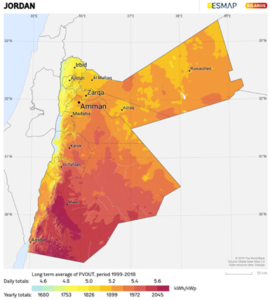
A potential partnership under construction
The mission was carried out with the support of MSED, which aims to support the dynamics of sustainable development, environmental education and renewable energies. To support these initiatives and host events related to these themes, MSED is finalizing the construction of the "Alya" ecovillage, located in Salt.
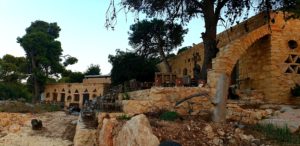

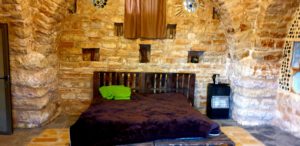
The village is built from traditional, sustainable materials (wood, earth, stone), or reused materials (window frames, glass bottles, etc.), with the participation of volunteers (national and international) in the construction. The site aims to demonstrate that it is possible to build at modest cost and with a sustainable approach, against a backdrop of soaring property prices.
Most of the accommodation has been finalized. Eventually, a conference room, a workshop and a collective kitchen will complete the facility, which will be used for seminars, meetings and training courses.
Avenues for further development
Energy is essential, especially in the agricultural area of the Jordan Valley (for irrigation needs, in particular). Combined with the lack of qualified solar technicians on the job market, it appears that training photovoltaic professionals is a key element in meeting people's needs, while offering potential outlets in terms of business creation and employment.
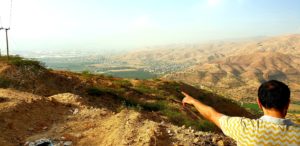
The PVSYST Foundation is therefore planning activities along these lines, which can meet the needs of farmers and households in the valley, as well as future professionals, in a country where young people are particularly hard hit by unemployment (40% among 15-24 year-olds). At the same time, we will be looking into the possibility of developing financial support mechanisms for access to solar energy.
Discussions with MSED are continuing, and a preliminary study is planned to refine the primary needs analysis and clarify certain legal and technical issues.
Prospecting for a cold storage project
Regular exchanges with CAMP, the implementing partner of the "PROMEE" project in Kyrgyzstan, had highlighted the need for cold storage for the Issyk-Kul farming communities. The region is ideal for growing apples, pears and apricots, and many of the inhabitants of these rural areas are involved in these crops. This project had already been mentioned in a previous article.
In early February 2024, CAMP and the Foundation signed a cooperation agreement to launch the preliminary study. The aim is to clarify certain points noted during the field visit, and to clarify any outstanding issues following the visit.
The study is planned over 4 months, and divided into 4 components:
- overview of the situation: storage capacity in the area, assessment of production volumes, sales patterns, price analysis
- survey of stakeholders (local political and administrative authorities, communities) and establishment of a participatory governance model for the structure.
- Technical solutions: energy provision and cooling systems, relevance of photovoltaic energy use
- An analysis of the business model: investment model, return on investment, financing model.
All these elements will be synthesized and analyzed in a report, which will serve as a precursor to the development of the project.
